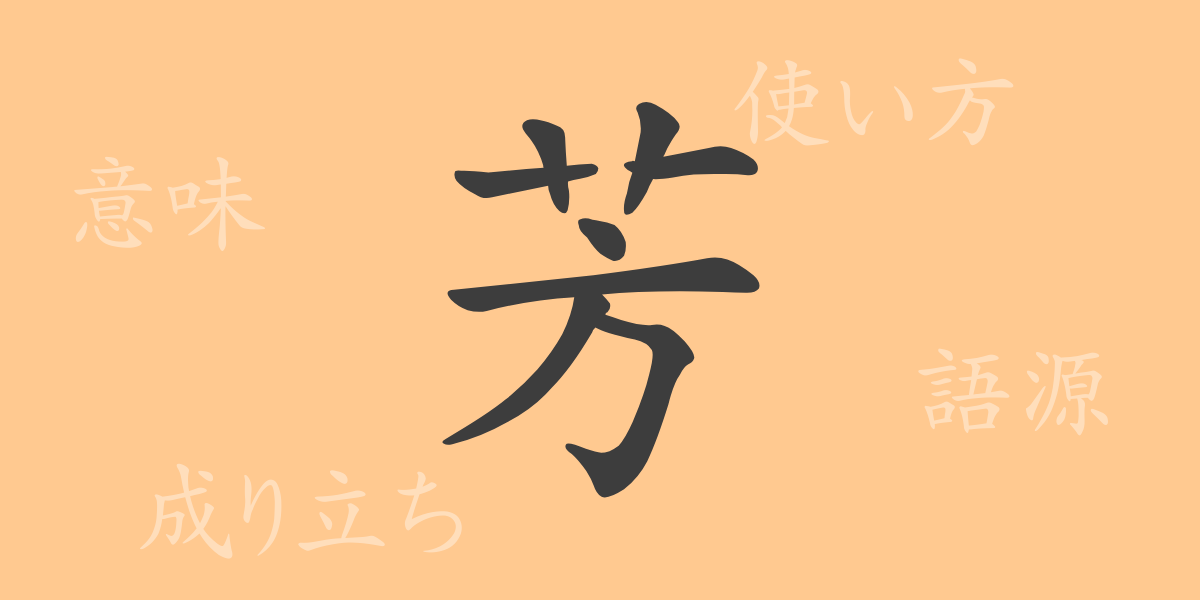Japanese character culture is profound, and the history and meaning of each kanji are essential elements that shape the beauty of the Japanese language. One of the 常用漢字(jouyou kanji) is “芳(ほう, hou)”, which, along with its unique resonance, leaves a special impression on the hearts of the Japanese people. In this article, we delve into the charm of the kanji “芳(ほう, hou)” from its origin and meaning to its usage, including idioms and proverbs.
The Origin of 芳(ほう, hou)
The kanji “芳(ほう, hou)” has its origins in ancient China. It is composed of the grass radical and the character “方(ほう, hou)”. Originally, it depicted the image of plants emitting a pleasant fragrance. Over time, its meaning expanded to not only signify a good scent but also to represent good qualities or reputation.
Meaning and Usage of 芳(ほう, hou)
“芳(ほう, hou)” means “fragrant,” “excellent,” and “beautiful.” It is also used in personal names and place names, imparting a positive image such as “superior” or “auspicious.” Often used as an adjective in the form “芳しい(かんばしい, kanbashii),” it describes someone’s admirable qualities or deeds.
Reading, Stroke Count, and Radical of 芳(ほう, hou)
The kanji “芳(ほう, hou)” has distinctive readings and structure.
- Reading: It is read as “ホウ(hou)” in On’yomi and “かんば(しい, kanba(shi))” in Kun’yomi.
- Stroke Count: It consists of 12 strokes in total.
- Radical: The radical is 艸(くさかんむり, kusakanmuri), indicating its relation to plants.
Idioms, Proverbs, and Phrases Using 芳(ほう, hou) and Their Meanings
There are numerous idioms, proverbs, and phrases that include “芳(ほう, hou),” each illustrating the richness of the Japanese language. For example, “芳香(ほうこう, houkou)” means “fragrance,” “芳名(ほうめい, houmei)” means “good name” or “reputation.” Additionally, “芳紀(ほうき, houki)” signifies “good age” or youth, and “芳風(ほうふう, houfuu)” translates to “good wind,” representing beautiful scenery or good reputation. These idioms are used in daily conversation and literature to convey beautiful imagery.
Conclusion on 芳(ほう, hou)
Understanding the meaning embedded in each kanji is the key to knowing the Japanese language more deeply. The kanji “芳(ほう, hou)” continues to be loved by many for its unique beauty in form and sound. Evolving from an image of fragrant nature to a word symbolizing human virtues and reputation, “芳(ほう, hou)” holds a special place in the Japanese language.

























